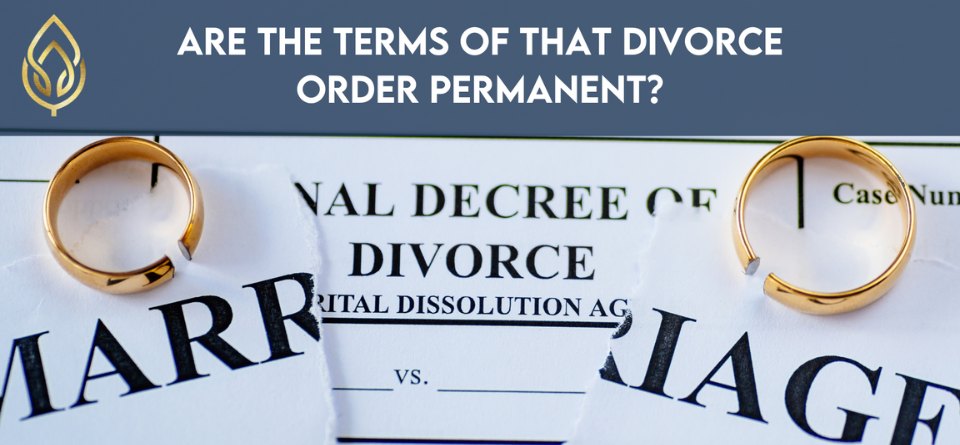If you’ve recently made an informed decision to divorce and followed through with the process, you have a reasonable right to regard the future with hope and the real prospect of a fresh start.
Divorces comprise a broad realm, with some being relatively civil and absent any material challenges and others being marked by tug-of-war strategies and overt adversarialism.
Whatever the nature of your dissolution might have been, it is likely that essential terms and conditions concerning various matters were set forth in a court-overseen divorce decree. That is especially true where child-centric issues featured, as well as matters like marital asset division and support concerns.
Once executed, are divorce order terms cast in stone?
We note on our website that a divorce order serves as the “formal conclusion” of an Illinois marriage. As such, it is given great weight concerning post-divorce issues that might arise.
That doesn’t mean it’s immutable.
In fact, significantly altered circumstances often arise for ex-spouses following a divorce that logically require some legal adjustment. A court will reasonably entertain a modification when one or more post-order factors intervene that materially undermine the original rationale for an order. We spotlight on our website these key family law areas that are sometimes candidates for change:
- Custody and parenting time (visitation)
- Child support
- Adjustments relevant to things like employment and relocation
- Spousal maintenance/alimony payments
Former partners sometimes agree that a modification is warranted. And, of course, sometimes they don’t. A divorced party seeking to either modify an order or objecting to an ex-spouse’s petition for change can obtain candid guidance and proven legal representation from an experienced family law attorney.

